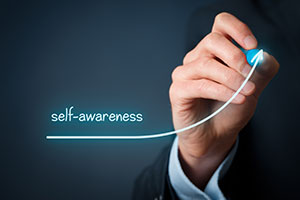 Creating a high performing team is part art and part science. First, you must combine the right mix of skills, knowledge, abilities, experience, and personalities. Then, you must ensure they’re all moving toward the same goal and motivated by the same vision. When one person struggles, it can drain the energy of the whole team and create a distraction that impacts performance.
Creating a high performing team is part art and part science. First, you must combine the right mix of skills, knowledge, abilities, experience, and personalities. Then, you must ensure they’re all moving toward the same goal and motivated by the same vision. When one person struggles, it can drain the energy of the whole team and create a distraction that impacts performance.
One of the most difficult issues to overcome is when one team member lacks self-awareness. In a team environment, when one person is unaware of the impact their have on the organization or their colleagues, correcting the issue can be a challenge. When a lack of self-awareness is coupled with overconfidence, the problem can seem insurmountable.
Coaching someone with low self-awareness takes a careful approach, patience, and persistence. The path to growth has many obstacles including resistance, denial, and possibly disengagement.
To begin, remember that the feedback may not be well-received. Start by reaffirming that you believe in the individual’s ability to be successful. Let them know you’re committed to their development. Then ask if they’re open to constructive feedback. By setting the stage that you’re an ally for the individual, you will hopefully engage them in a more honest discussion where they’re more open to your feedback.
Remember to be compassionate. Even constructive feedback can be startling and difficult to process. Start with positive feedback. Explain why the individual is an asset to the team and the vision you have for their future. Then share suggestions for ways they could be more effective.
While being compassionate in your words, tone, and approach, it’s also important to be direct. Realizing the path to improved self-awareness is a long one, there’s a good chance the individual will need to have the same conversation a few times with additional behavioral coaching. They will resent the 3rd or 4th conversation if they feel like you danced around the core issue on the first interaction.
Finally, pick your battles. Remind yourself that acknowledging development issues is difficult and there is always a risk of disengagement or counterproductive behaviors when someone feels targeted. Identify the largest area of concern where you believe you can make the most impact and start there. At every opportunity, celebrate even marginal improvements. Praising the positive improvements, while consistently coaching towards more effective behaviors will help the individual stay motivated to on their path of personal improvement and greater self-awareness.
